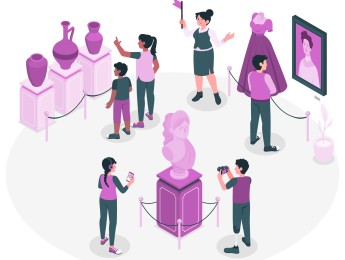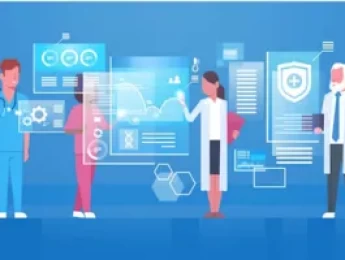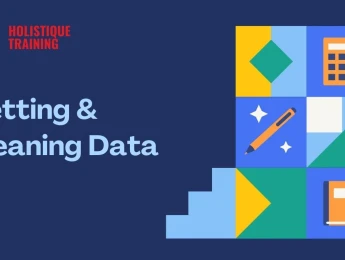Finding suitable candidates for the role is often a challenge. To be an effective leader, one must possess a wide variety of skills to prepare for any projects or abnormal circumstances one may face.
A leader must be competent in the innovation process, especially within a team. They must lead with impact, influence, and inspiration. These traits will transform the productivity of any team. Influencing a team to become increasingly passionate will encourage them to be more free-thinking and draw inspiration from those around them. Inspiring employees leads to impactful performance.
Effective teamwork and innovation are intertwined. A productive team can collaborate with one another to utilise each member's unique skills and strengths, engage in a project, and perform to the best of their abilities. Positive change through innovation will aid in maintaining the team's dedication. With necessary guidance from a leader, these operational teams will be more self-sustainable than teams severely lacking in innovation.
Upon completion of this course, participants will be able to:
- Understand the characteristics that make an effective team.
- Identify the differences between ineffective and effective teams.
- Analyse team member’s behaviours and motivations.
- Create goals and objectives to achieve as a team.
- Devise strategies to prevent and deal with conflict.
- Provide rewards and incentives to encourage excellent performance.
- Review methods of coaching and mentoring team members.
- Understand the role of innovation within teams.
- Create innovative action plans to increase team productivity.
- Measure and manage performance.
This course is designed for anyone responsible for team management who wishes to maximise team efficiency. It would be most beneficial for:
- Team Leaders
- Senior Executives
- Project Managers
- Innovation Managers
- Planning and Strategy Managers
- Business Owners
- BPM Managers
- Business Analysts
- Operations Managers
This course uses a variety of adult learning styles to aid full understanding and comprehension. Participants will review case studies based on real-world established leaders and teams to highlight areas of importance and potential issues they may have faced.
They will be supplied with the ideal tools required to carry out these learning exercises. Through presentations, group discussions, and role-playing activities, participants will be provided with ample opportunities to develop their knowledge of the taught content and demonstrate their skills. They will be able to create their own innovation strategies relating to their respective roles, present them to one another, and receive constructive feedback from one another.
Day 5 of each course is reserved for a Q&A session, which may occur off-site. For 10-day courses, this also applies to day 10
Section 1: The Role of Leadership
- The difference and importance of team leaders, managers and leaders.
- Key responsibilities of leadership.
- Why effective leadership is necessary for organisations.
- Balancing impact, influence and inspiration.
- The types of leadership styles and their specific characteristics.
- Identifying personal strengths and weaknesses.
- A strong focus on evolving personal emotional intelligence.
Section 2: Strategy and Innovation
- The vitality of innovation.
- Influencing others to support a vision.
- Review the stages of strategy management.
- Developing SMART objectives.
- Methods and techniques to problem solving.
- The seven steps to achieving innovation.
- Aligning innovation and strategies with organisational needs and values.
Section 3: Team Dynamics
- The five stages of team development.
- Creating a culture of high-performing teams.
- Appropriating delegating tasks to those most suitable.
- Identify team members' personal motivations and integrate incentives concerning these.
- Understanding personality types and predicting where conflict may potentially occur.
- Empowerment and engagement.
Section 4: Maximising Team Potential
- Different personality types and positioning for success.
- Encouraging a culture of creativity and passion.
- Coaching, mentoring and self-directed development.
- Offering and receiving constructive criticism.
- Analysing team strengths and actively working together to improve weaknesses.
Section 5: Performance and Conflict Management
- Identifying high-priority targets.
- Assessing the six dimensions of performance management.
- How to measure team performance.
- Tracking personal performance.
- Managing challenging employees and relationships.
- Transforming conflict into teachable situations.
Upon successful completion of this training course, delegates will be awarded a Holistique Training Certificate of Completion. For those who attend and complete the online training course, a Holistique Training e-Certificate will be provided.
Holistique Training Certificates are accredited by the British Assessment Council (BAC) and The CPD Certification Service (CPD), and are certified under ISO 9001, ISO 21001, and ISO 29993 standards.
CPD credits for this course are granted by our Certificates and will be reflected on the Holistique Training Certificate of Completion. In accordance with the standards of The CPD Certification Service, one CPD credit is awarded per hour of course attendance. A maximum of 50 CPD credits can be claimed for any single course we currently offer.
- Course Code MG2-166
- Course Format Classroom, Online,
- Duration 5 days














